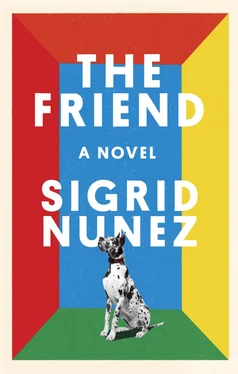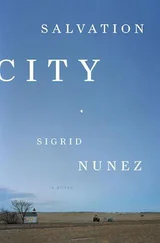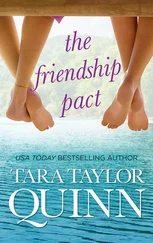God save us from the white knights, she says. Why is it so hard to believe that we don’t all need, or want, rescuing? But then, hasn’t it always been impossible for society to accept that what a woman does with her body is strictly her own business.
A story this woman likes to tell concerns the French actress Arletty, who in 1945 was convicted of treason because, during the Occupation, she’d had an affair with a German officer. In her defense she said, My heart is French but my ass is international. (Actually, my friend prefers a different, more succinct version of Arletty’s famous quip: My ass is not France.)
My friend the sex worker says she is amazed how naïve most women are. They have no idea that most men have had sex with a prostitute, their own fathers and brothers, boyfriends and husbands among them. I have heard Larette say the same thing—as I have heard men say they are doubtful of men who claim never to have paid for sex.
In a recent television documentary, a former prostitute who worked out of a suburban motel explains that Monday mornings were her busiest times: apparently nothing was so good for business as a weekend spent with the wife and kids.
I once asked my friend if she enjoyed being a sex worker. I was pretty sure she’d say yes. But she looked at me as if she hadn’t heard me right. I do it for the money, she said. There’s nothing to enjoy . If I could make a living off writing, I wouldn’t do it at all. It’s easier than teaching, she said.
• • •
I had to promise not to use anything the women in the workshop wrote. But my friend the psychologist agreed to let me write about her and the work she did. You, in your generous way, pitched the idea to an editor you happened to have lunch with. Soon I had a contract and a deadline.
• • •
Not long after we had graduated from college, my friend published some stories. The magazines they appeared in were small but prestigious, the kind of literary quarterlies that got serious attention. One of the stories won a prize, and later that year she was nominated for, and subsequently granted, a much bigger prize given annually to promising young writers.
I want to know why she stopped writing.
It wasn’t exactly a decision, she said. It was just something that happened. I’d started writing a novel and was having trouble concentrating, and someone I knew suggested that I try meditation. That’s how I got into Buddhism. I spent a month at a retreat upstate learning how to meditate, and I’ve been doing it ever since. I know there’ve been plenty of writers who were into Buddhism—and who doesn’t practice some kind of meditation or yoga these days? And I know there are people who say that meditation helped their careers. But from the time I started studying Buddhism I found it at odds with wanting to be a writer.
To clarify, though, I didn’t ever stop writing. There was no need for me to do that. I journal, for one thing—in fact, I consider journaling a kind of meditation—and I write poetry. The things I see in my job every day are very disturbing, and I’ve found that poetry helps. Not that I ever write about my job. My poems tend to be about the beauty of the world—about nature, mostly. It isn’t very good poetry, I know that, and I have no desire to share it. For me, writing poetry is like prayer, and prayer isn’t something you have to share with other people.
It wasn’t that I wanted to withdraw completely from the world. I wasn’t about to become a Buddhist nun or anything like that. But as I say I started having doubts about becoming a writer. I didn’t see how I could reconcile a literary career with the goal of freedom from attachment. Soon after I finished the Buddhist retreat I did a residency at an artists’ colony—I was hoping to get back on track with the novel. I remember looking at the other people there, some of whom were just starting out like me and some of whom were already established, and thinking about what it took—besides talent, of course—to succeed. You had to have ambition, serious ambition, and if you wanted to do really good work you had to be driven. You had to want to surpass what others had done. You had to believe that what you were doing was incredibly serious and important. And all this seemed to me in conflict with learning to sit still. To let go.
And even though writing isn’t supposed to be a competition, I could see that most of the time writers believed that it was. While I was at the artists’ colony, one of the writers there got an advance so huge it was reported in the Times . That night at dinner he said, There go my last two friends. He was joking, of course, but I have noticed that whenever a writer hits it big a lot of effort seems to go into trying to bring that person down.
Also, it seemed like money was in the front of everyone’s mind. I didn’t get that. Who on earth becomes a writer for the money? I remember my first writing class, the teacher said: If you’re going to be a writer, the first thing you have to do is take a vow of poverty. And no one in the room batted an eye.
It seemed to me that everyone I knew who was a writer—which back then meant pretty much everyone I knew—was in a state of chronic frustration. People were constantly getting worked up over who got what and who got left out and how horribly unfair the whole business was. It was very confusing. Why did it have to be like that? Why were the men all so arrogant, and why were so many of them sexual predators? Why were the women all so angry and depressed? Really, it was hard not to feel sorry for everyone.
Whenever I’d go to a reading I couldn’t help feeling embarrassed for the author. I’d ask myself did I wish that was me up there, and the honest answer was hell no. And it wasn’t just me. You could feel it in the rest of the audience, that same discomfort. And I remember thinking, This is what Baudelaire was talking about when he said that art was prostitution.
Meanwhile I was still struggling with the novel. And then one day I said to myself, Say you don’t write this book. Weren’t there a zillion other people willing to bring novels into the world? Weren’t there, in fact, already too many novels? Did I honestly think mine would be missed? And could I justify doing something with my life, my one wild and precious life, that I knew, undone, would not be missed?
Around this time I happened to hear some writer talking on the radio. I can’t remember who it was, but for me it might as well have been God. I remember him saying that if in all the next year not a single work of fiction was published, instead of the staggering number of stories and novels we knew would be published, the effect on the world would be essentially the same. Not true, of course, because I suppose there’d be a significant effect on the economy. But I knew what he was saying, and I felt as if he were saying it to me. Which is when I said to myself, You must change your life.
Not that I didn’t have regrets. There were plenty of times when I had the very lousy feeling that I was just a quitter, too lazy or too cowardly to live up to my own dream. But if I needed proof that I’d made the right decision, I just had to look at my own reading. I used to be the most passionate bookworm, but over the years I’ve become less and less interested in reading, especially fiction. Maybe it has to do with the realities I see every day, but I started to feel bored with stories about made-up people living made-up lives full of made-up problems.
For a while I kept up. I’d buy a book that everyone was calling a masterpiece, or the Great American Novel or whatever, and half the time I wouldn’t finish it. Or if I did finish it, I wouldn’t remember it. Most of the time I’d forget a book almost as soon as I closed it. Then it got to the point where I pretty much stopped reading any fiction at all, and I realized I didn’t miss it.
Читать дальше












